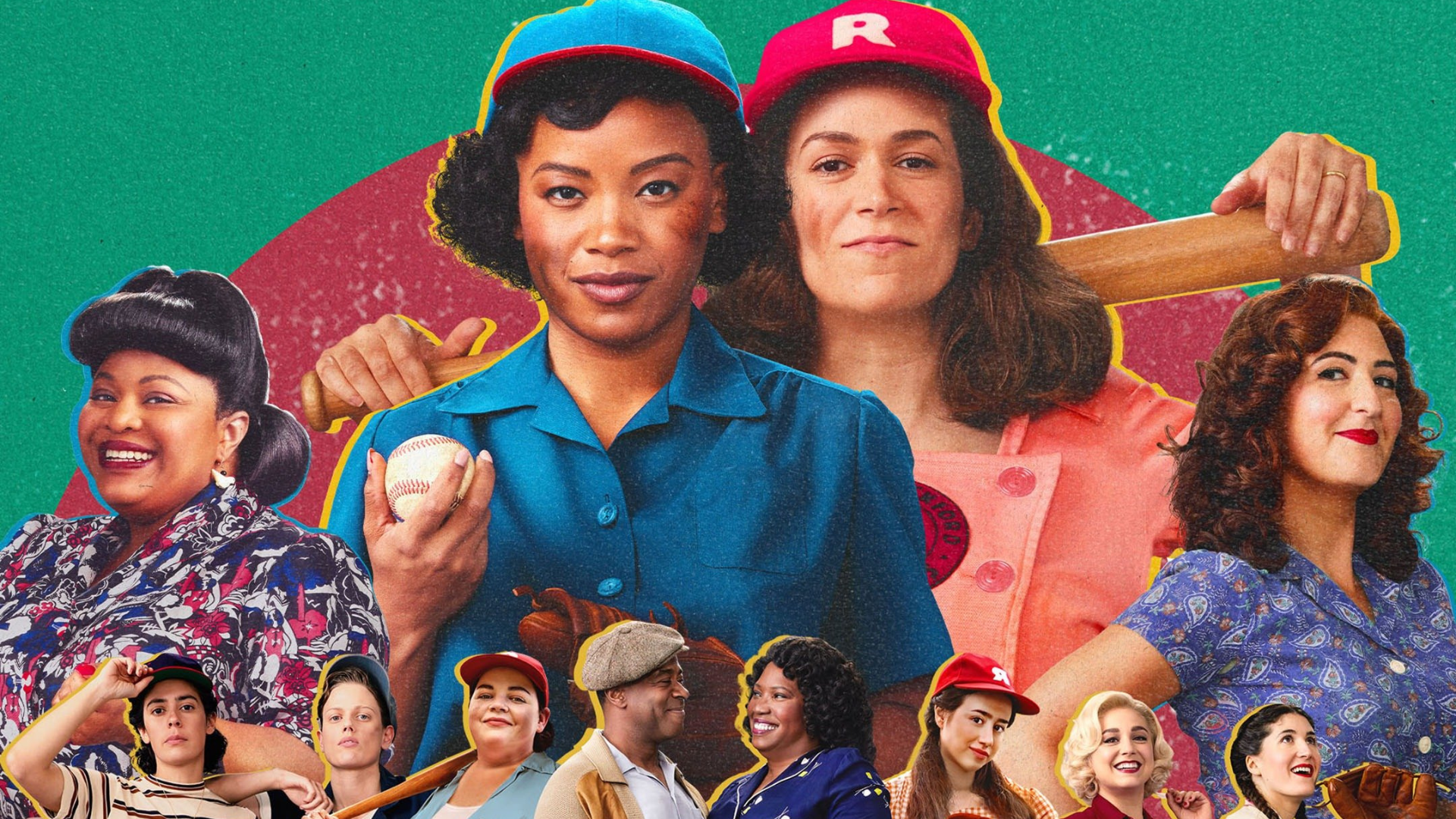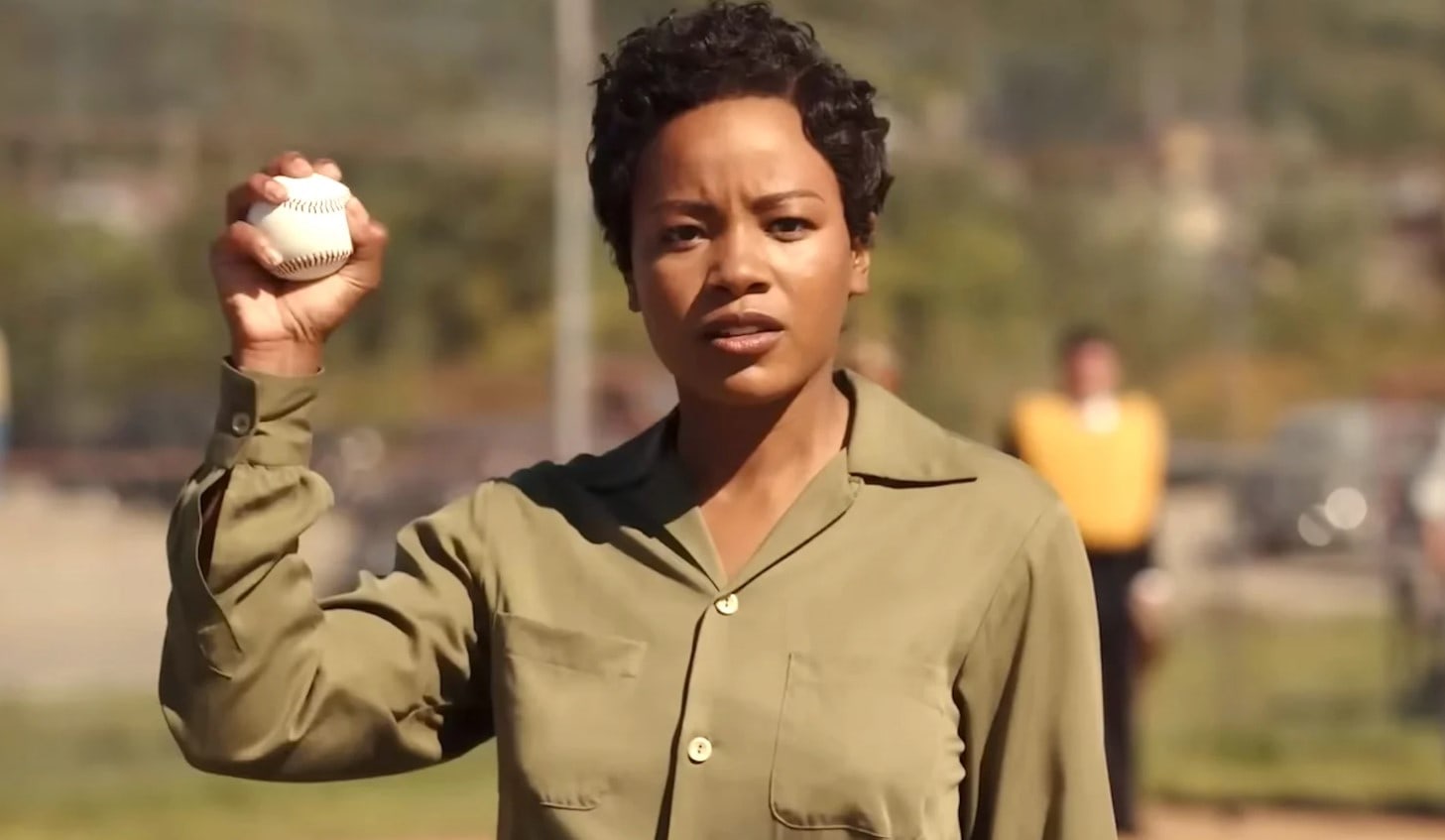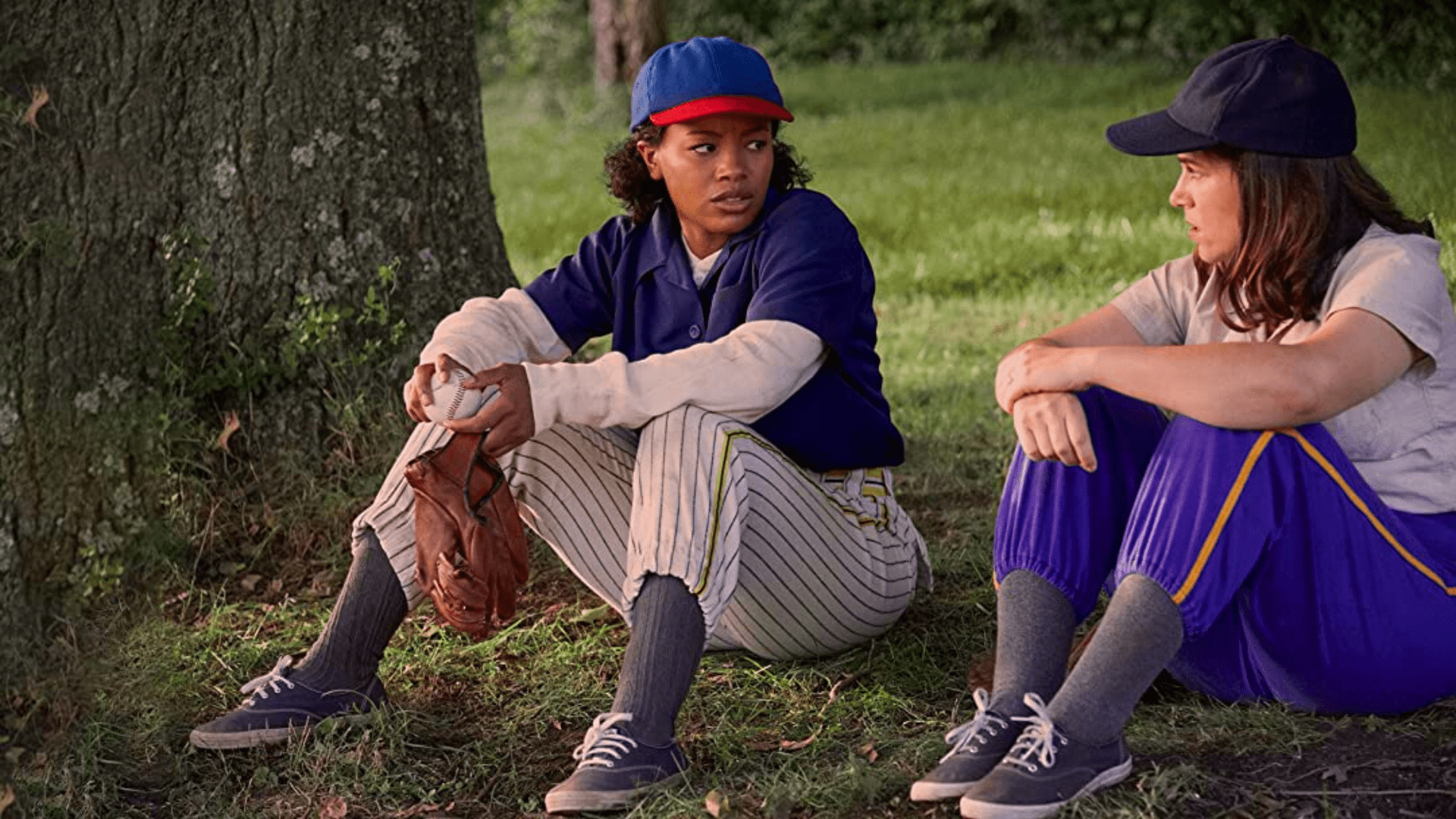
A League of Their Own is a masterpiece in queer storytelling
If someone had told me that a show focusing on women’s baseball in the 1940’s would make me jump around, feel giddy and fill me to the brim with the joy of being queer, I would have sincerely questioned their judgment. Of course that was before I sat down to watch Amazon’s A League of Their Own.
Created by Will Graham (Mozart in the Jungle, Odd Mom Out) and Abbi Jacobson (Broad City, The Mitchells vs. The Machines), A League Of Their Own follows two parallel storylines: the formation of real-life women’s baseball team The Rockford Peaches under the leadership of Carson Shaw (played by Jacobson), and Max Chapman’s (Chanté Adams) struggles as a black, queer woman who faces obstacle after obstacle in pursuit of her dream to become a baseball star. Much like a confluence of two rivers, these storylines meet together at times, but eventually diverge to continue their own trajectory. But what keeps them from separating completely is the journey of discovery and queer joy that the dual protagonists follow.
Growing up queer in the 2000s was a weird time. Despite the numerous amount of ‘transgressive’ sexuality that was highlighted in various media, whether that be film, TV, or even celebrities, there was still an underlying sense of unease and homophobia that no amount of clinical and manufactured queerness could stamp out. I grew up in that era, where Katy Perry’s ‘I Kissed A Girl’ was a jokey song that both put the fear of god and a curious longing in my chest, where queerbait dominated TV screens and music concerts, where the only joy to be found was in the small moments of authentic LGBTQ+ stories and tight-knit communities that were eager to celebrate the thing that made them different. While this was far from different from the homophobia and racism that plagued the 1940’s, the small joy of finding your community that made you feel not so small after all was still freeing.
It is this feeling of exuberance that runs through the heart of A League of Their Own. Carson Shaw leaves her church-abiding family and home behind to join the Rockford Peaches, an all-female baseball team. Along the way she meets Greta Gill (D’Arcy Carden) and Jo DeLuca (Melanie Field), two other players who have come for tryouts and much like herself, seems to be running from something. Carson and Greta grow close and begin an romantic entanglement, and other players part of the team are slowly revealed to be LGBTQ+ also, such as Jo, Lupe García (Roberta Colindrez), and Jess McCready (Kelly McCormack). Max also finds a place of her own throughout the show, turning to her estranged trans uncle Bertie (Lea Robinson) and embracing the queer, black community that Bertie and his wife is surrounded by. With their help, Max gets to make a choice on who she wants to be, rather than what everyone else wants from her.
What makes these two characters forging ahead against their troubles so important is the role race, gender and sexuality had during the time period. World War 2 was a societal turning point for many reasons, but one of the most prominent was that it allowed women to step forward and ‘fill in’ the gaps that men had left behind. Of course, it wasn’t out of a place of kindness to benefit women, nor did it allow black women in particular the same privilege. The role of women stepping into the role usually taken up by men was merely a necessity in order to keep the world spinning and for the war effort to thrive.

Stepping into the role of a ‘man’ comes with its own burdens, something which A League of Their Own doesn’t shy away from even in its most lightest of moments. In fact, I’d go on to argue the underlying tension of not being able to be yourself is masterfully portrayed throughout the first season. The Rockford Peaches faces the reality of this from the get-go: they must be feminine, wear dresses instead of pants both in and outside of game time, wear make-up, and embrace the gaze of the men who desire both their bodies, and their complete and utter failure. This causes strife for more than a few characters, with some of the Rockford Peaches actually being cut from the team due to their unwillingness to adapt to heteronormative and cisgender norms.
This danger of being against the status quo is also particularly felt with Max. Max’s struggle as a black woman is conveyed from the get-go, with racism preventing her from trying out alongside the Rockford Peaches in the first place and her gender stopping her from trying out for the local baseball team at the screw-factory.
For the first few episodes of the show Max’s pain and struggle to try and understand who she is as a lesbian, as well as her gender-expression, is keenly felt during scenes with mother Toni Chapman, and throughout her time with her best friend, Clance. Both of them do have her best interests in mind in their desire to see her settle down with a husband and take over the hair salon, but ultimately this is only what pushes Max to try and embrace something she isn’t. It comes from a place of love for Max, but robs her of the agency to be who she is. It’s only when Bertie comes into Max’s life where things start to make sense for her and she begins to embrace who she and her community is.
Carson’s ascent in both understanding herself and as the leader of the Rockford Peaches directly parallels Max’s journey. While both face the ongoing threat of being outed and shunned from the cis and heteronormative communities due to their identity, Carson is still able to succeed in ways that Max can’t because she is still a white woman and white supremacy is just as relevant in A League of Their Own as is the queerness of its characters. They connect in ways that are, frankly, still relevant even today. Jacobson and Graham’s unwillingness to separate the two isn’t just part of good storytelling, but deeply authentic and hard-hitting writing.

But it isn’t just misery in A League of Their Own. It is a comedy-drama show after all, and even with the hatred that all our characters face for simply being who they are, there is still an overwhelming amount of joy and love to be found. Carson’s relationship with Greta and their push-pull dynamic is intoxicating to experience, giddy in its ascent from a fling to what could be very real love for one another despite the number of things that stand in their way – including Carson’s very alive husband, Charlie.
Ultimately, the scene that filled my heart with warmth and that still sticks in my mind to this day is the very last meeting between Carson and Max. Here they bond over their respective romances with Greta and Esther. It’s at a stage where Carson and Max’s positions directly change: Max has a bright future ahead with Esther and the All-Stars, but Carson faces the very real fear of losing the connection she has with Greta, as well as failing the rest of The Rockford Peaches. She’s unmoored, but Max is there to tether her by reminding her of the all important 5 minutes. She tells Carson, “I would rather have five minutes of what this feels like right now than a whole lifetime of before.” It is such a powerful statement, one that I would have personally loved to hear back when I was younger and I had no clue whether being true to myself was worth it.
From scenes like Lupe and Jess hunting Esti down to make sure she’s okay, Clance accepting and embracing Max’s new style, Beverly giving Jess back her fine money, The Rockford Peaches helping Jo cross over that all important line to earn her the recognition she’s always wanted… Solidarity is everything, and A League of Their Own knows it.
Once I had finished the show I found myself unable to sit still and as a writer? I won’t lie and say I wasn’t inspired. There are so many incredible queer stories out there that are just waiting to be told, and I can see A League of Their Own being one that will stick with the LGBTQ+ community for a very long time to come.
A League of Their Own is available to watch now on Amazon Prime Video.






